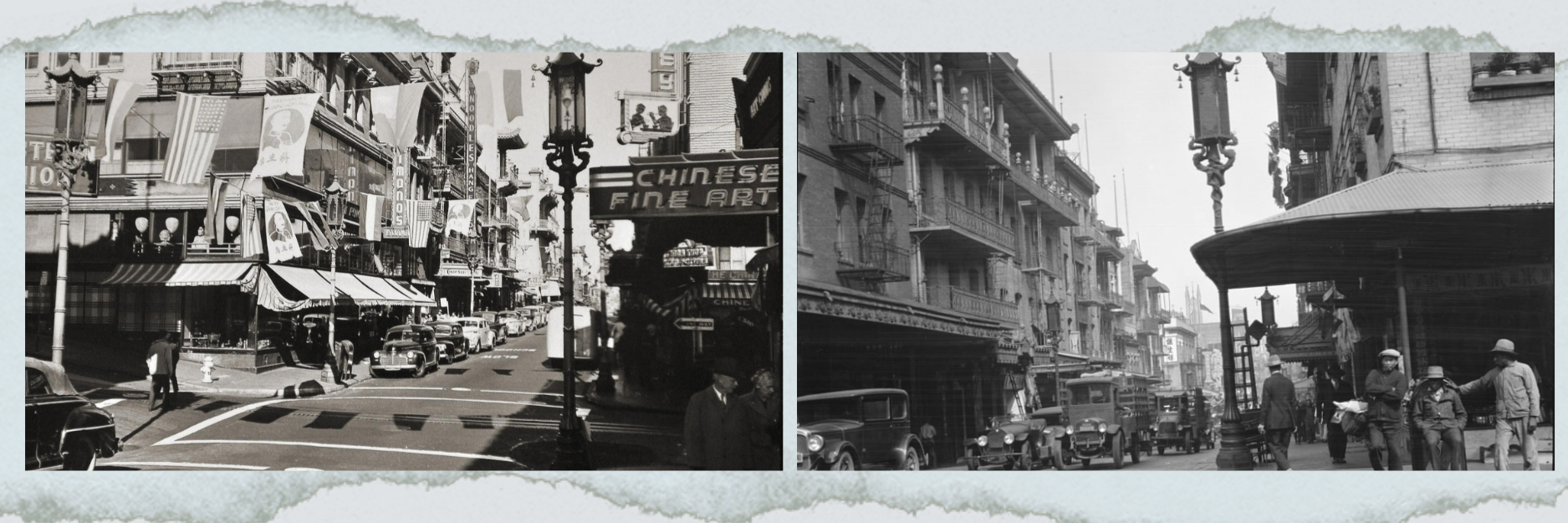James Poy Wong 黃培正

"Having been in both environments that are not thoroughly understood by him, he is unable to choose what course to follow. Under these layers of contradictions, he can only bear the severe pain in his heart and body."
"Take A Boat Back to China" - 1946
搭船返唐山
“山牛南” 的蓝头货车,和其他几个专门运货人的车,又停在华埠的街边, 装载着形状和大小相等的箱柜。 在巴士上落站的白线那里,有一班高矮不齐而年龄各异的男女在等候着,现出极不耐烦的神态。
显然的,他们是一家人。 最幼的还抱在不惯涂脂抹粉的中年妇人之怀中, 跟前是两个圆面孔的女童,年龄相差不过两岁,还有一个看来是八九岁的男童, 黑发是新剃过的,耳旁亮得发白,上面戴着一个黑碗般的帽子。
这种景象太惯熟了。 它是十年前许多人认为喜剧的一幕,经过十年的间隔,今日又在眼前重演。 不错,这个社会又在流动,人们回中国去了。
我们不能否认,华侨社会的分界线,日渐显明。 年青的一代,已无条件的接纳西方文明,但主体的中年世代,大多数是走着前一代所走的路径,经过多年的出洋生活,终于把妻 “寄” 了过来。 又来几年的牛马,连串的加紧制造国民,至今儿女成羣,平均是六七岁了。 为父的离家十余载,鸟倦知还,想回家过点清闲福。 为母的亦觉得生活水准较低的故国,可以显贵。 于是以带儿女回国读书为名,全家执拾行李,舍弃了在床底积贮多年的废物,上船回国了。
我们这一代,对于父母思家念祖的热情,表示万二分的同情。 但请想一想这年才八岁的儿童,刚刚学了一点英文,又被带到另一个陌生的环境中,遗忘所学的一切,从头学习中文。 但小康的家产,不能供给他读到学业有所成就,因为父母没有生产,渐渐由小康而降到难以支持的困苦地位。 于是有的合家回来,有的却迫着儿子独身出洋,这儿子已是十四五岁了,回到美国来时,命运早已摆定。 半工半读的生涯,从此开始他埋头读英文, 但中文又从脑海中溜走了。
在两种都不曾彻底明了的环境中,他不能决择,无所适从,在这重重的矛盾之下,只受着身心的绝大痛苦。 有些能由迷雾中寻回出路,从心理的束缚下解放自己,有些则让自己沉沦。
雾的季节回来了。 黑夜中的船笛呼声对你或者有很大的诱惑,但你要想想,船是从浓雾中开入的。
Taking A Boat Back to China
The blue truck of “Big OX Nan” loaded with similar-sized containers of personal belongings and a vehicle carrying a few movers are parked on the curbside of a street in Chinatown again. At the white line of a bus stop a group of people of varied heights and ages are waiting with extreme impatience.
Obviously they belong to the same family. The youngest one is carried by a middle-aged woman unaccustomed to wearing makeup. In front of her are two little rounded-face girls whose ages are about two years apart, and a boy looking no more than eight or nine years old. His newly-cut black hair is shining brightly on the ear sides, making him appear to be wearing a black bowl on top of his head.
This scene is too familiar. It was considered a happy scene ten years ago, and after an interval of a decade, it replays in front of our eyes again. In fact, this society is in a flow of mobility anew. People are returning to China.
We can’t deny that the line of demarcation within overseas Chinese society is clearer by the day. The young generation has unconditionally embraced Western culture, but for the main group of middle-aged generation, most have followed the footsteps of the previous generation. After many years of living overseas, they finally “shipped” their wives over. Then, they continue a few more years of harsh labor, while earnestly producing citizens. Now they have a bunch of children of both genders, averaging six or seven years old. The father has left home for ten or more years, and he is like a bird thinking of returning home for a happy and leisure life. The mother also feels that the lower living standard back home will allow her to show off her status. Therefore, in the name of taking the children back for schooling, the whole family packs up their belongings, rids of those useless things stored under their beds for many years, and gets on a boat sailing to China.
Our generation immensely sympathizes with our parents’ passionate longing for their homeland and missing their ancestors. But please consider for a child merely eight years old who has just begun learning a little English, is taken into another unfamiliar environment, will forget what one has learned, and will have to study Chinese language from the beginning. But a low-middle class family does not have the resources to support the child until one can obtain academic success. Because the parents have no means of income, their comfortable living will gradually decline to a state of hardship. As a result, some families will collectively return, but some will force their son to go abroad alone. The son would have reached the age of fourteen or fifteen when he returns to America, and his fate has been predetermined. Thereafter, with a way of living by attending school while working, he begins earnestly studying English, while his knowledge of Chinese language will escape from his brain again.
Having been in both environments that are not thoroughly understood by him, he is unable to choose what course to follow. Under these layers of contradictions, he can only bear the severe pain in his heart and body. Some are able to find a way out of this densely fogged situation and free themselves from psychological bondage. Others just let themselves sink into degradation.
The fog season has returned. The call of a ship’s steam whistle may bring you great fascination in the dark night, but you should think about it: the ships sailing into here are coming through from the thick fog.